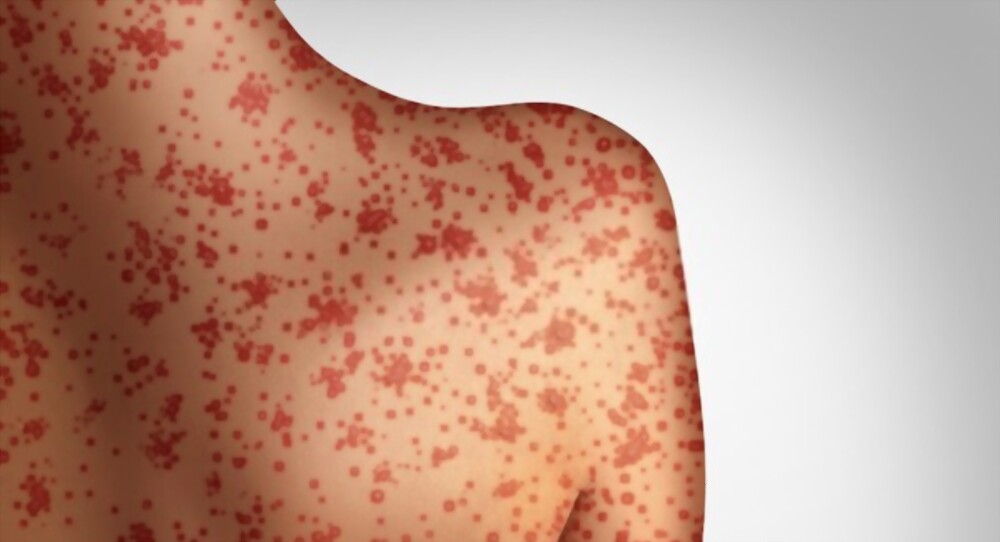Measles outbreak in Mumbai. Should Tricity be concerned?
The recent wave of measles has swept Mumbai with seven deaths and 164 cases of the infection reported in September alone. Overall, the number of suspected measles cases in the metro city has climbed to 1,263 and over 600 of these cases included children falling in the age group of 1 to 4 years.
Can measles also break out in Tricity?
The answer to this question lies in the hotspots of the recent measles outbreak.
According to one study, out of the 98 outbreaks in 2016, nearly 72% occurred in major cities like Mumbai, Pune, Nagpur, and Thane where people migrate for work. According to the census, nearly 67.1% of the population in Chandigarh are migrants.
However, it doesn’t mean that the migrants should be blamed for causing measles.
The point is here that the infection is likely to spread when the carrier moves from one place to another.
There might be some suspects of this disease among them. Therefore, we need more medical aid and awareness campaigns in place to tackle such issues.
The History of Measles Outbreak in Chandigarh and Surrounding Areas
Chandigarh faced its share of measles outbreaks in the late 90s and early 2000s.
In Feb 1999, two hundred and eight three cases of measles were reported in areas like colony No. 5, Ramdarbar, Palsora and Pandit colony of Kajheri, covering a population of 14,601 and 7.3% (216/2968) of families were affected in the outbreak. Among the affected people, only 48.8% were vaccinated.
The researchers owe the outbreak to the low immunization coverage.
Another outbreak of measles happened in April 2003.
Measles: Symptoms, Diagnosis, and Treatments
Measles is a highly contagious illness that can be deadly in children. It’s caused by a virus, but it doesn’t have any symptoms until you are exposed to the measles virus and get infected.
When people who haven’t been vaccinated against measles get exposed to the virus, they have no idea they have been infected until they develop symptoms of the disease—which may include fever, cough, runny nose and red eyes for 3-4 weeks after infection occurs.
Symptoms
The first sign of measles is usually a fever, followed by cough and nasal congestion. A red eye develops within a day or so of the start of symptoms—the reddening may be mild or severe depending on how much exposure to sunlight you’ve had (and whether or not there’s any underlying medical condition).
After two days, your symptoms may include:
- Coughing (sometimes accompanied by mucus)
- Runny nose with sneezing and/or watery eyes that feel swollen shut; these symptoms often last for several days after you begin feeling better.
Diagnosis
The diagnosis of measles is usually made through a physical examination, blood test and a throat swab. If you suspect someone has the disease, see their doctor immediately. Do not go to the doctor if you have symptoms until your doctor confirms that it is indeed measles.
Treatments
- Avoid contact with people who have measles. If you’re exposed to the virus and develop symptoms, stay at home until your fever goes down and make sure you don’t get close to other people until at least 4 days after feeling well.
- Rest and drink plenty of fluids. The virus usually clears up within 12 days but may last a few weeks in some cases if you are immunosuppressed (see below).
- Take paracetamol or ibuprofen for fever and pain (or both). This can help relieve aches in joints, muscles and stomachaches caused by a viral infection; it also reduces inflammation which helps speed up recovery time by reducing swelling around glands like those in your neck or throat that become swollen during an infectious disease outbreak such as measles.
Paracetamol is available over the counter without a doctor’s prescription; there are many different brand names available so check before taking any medication – some may contain aspirin which should not be taken whilst pregnant/breastfeeding.
Measles is a very contagious illness, prevent it with vaccinations.
Measles is caused by the measles virus, which spreads through coughing or sneezing.
The virus can be spread from person to person through direct contact with infected people (sneezing, coughing) or indirectly when infected people are in close contact with someone who hasn’t yet been exposed to them (sharing food utensils).
The best way to protect yourself from catching measles is by getting vaccinated—and this isn’t just for babies! All children should get the MMR vaccine before they turn 18 months old; teens in Grade 9 or 10; those working at childcare centres (including daycares), hospitals; pregnant women considering travel during pregnancy; health professionals treating patients overseas.
The Conclusion
Measles is a very contagious disease, and it can cause serious complications for people who are already weak or have health problems. The best way to protect yourself from this illness is to get vaccinated as soon as possible.
Meet Our MD, Dr. Charandeep Singh Sahni
We take pride in the fact that we are led and driven by the innovative and humanitarian approach of our honourable managing director, Dr Charandeep Singh Sahni. Carrying several years of experience in medical services under his belt, Dr Sahni has been actively involved in organizing and conducting national and state-level conferences at TMH. He specializes in lymph node pathology, GI pathology, head and neck pathology, and breast pathology.
Medical Academic Background and Career at a Glance
- MBBS from the prestigious Grant Medical College and Sir JJ Hospital, Mumbai with distinction in Biochemistry and Pharmacology in 2000.
- MD in pathology from Tata Memorial Hospital, Mumbai from 2003-06.
- Worked as Senior Resident in Department of Histopathology at PGIMER, Chandigarh.
Research and Papers Presented by Dr Sahni
Dr Sahni also demonstrated his professional achievements by presenting his research works at several eminent conferences. Some of his research work was published and referred by eminent medical journals.
- He presented a poster on “Aorto-Left Atrial Fistula” in APCON 2003 at Bhubaneswar.
- His paper on “Analysis of Renal Cell Carcinoma: A Study of 173 cases” in APCON 2005 at Pune was lauded by the healthcare community.
- In 2006, he demonstrated an important piece of research titled “Distribution, clinicopathological characteristics and immunophenotyping of Hodgkin’s Lymphoma: A study of 313 cases using WHO classification (2000)” at APCON 2006 in Bangalore.
Key Published Works:
Dr Sahni has also been involved with many articles published by leading science and medical journals.
- Bothra R, Pai PS, Chaturvedi P, Majeed TA, Singh C, Gujral S, Kane SV. Follicular dendritic cell tumour of tonsil – is it an underdiagnosed entity? Indian J Cancer 2005; 42 (4): 211-4.
- Charandeep S Sahni, Sangeeta B. Desai. Distribution and Clinicopathological characteristics of non- Hodgkin’s lymphoma in India: A study of 935 cases using the WHO classification of lymphoid neoplasms (2000). Leukaemia and Lymphoma 2007; 48 (1): 122-133.
- Charandeep Sahni, Sangeeta Desai. Primary testicular precursor B-lymphoblastic lymphoma: A rare entity. Leukaemia and Lymphoma 2007

